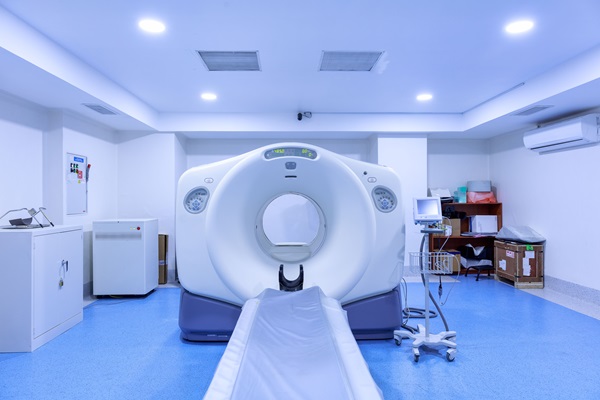What Happens During DOT Drug Testing?

DOT drug testing is performed as part of the biannual DOT physical checkup for all commercial drivers. The Department of Transport is responsible for ensuring that all commercial drivers are sober. For the well-being of employees and the public, the DOT monitors drug and alcohol use with regular testing. Keep reading to find out what happens during a DOT drug testing.
Why is DOT drug testing important?
Drug habits and regular drinking can impair a person’s ability to drive. The DOT is tasked with monitoring commercial drivers to maintain good health standards in all regards. This includes taking a strong stance against drinking and drugs, especially on the job. Vehicular accidents can result in expensive damage, serious injury, and loss of life.
The DOT makes sure that drivers do not become responsible for preventable disasters. Regular drug testing is part of helping commercial drivers stay unharmed and healthy. Alcoholism and narcotics are extremely damaging to a person’s health. They also present serious dangers when working with vehicles and machines. For these reasons, the DOT takes its responsibilities toward employees and the public seriously.
What sort of drivers need DOT drug testing?
There are four broad categories of commercial heavy goods drivers who need regular DOT drug testing:
- Drivers employed to transport 8+ passengers at a time
- Drivers transporting hazardous chemicals
- Drivers in charge of any vehicle over 10,000lbs (total load, including passengers and freight)
- Drivers transporting 15 or more passengers for any purpose
A DOT physical confirms the person as fit to drive for two years. Some health conditions may mean that a person needs a DOT checkup annually. Other employees of the DOT and contractors within their remit may also be subject to physical checkups. The biannual checkup includes drug testing as standard.
What does DOT drug testing involve?
To test for drugs, the doctor takes a urine sample. The sample is tested for various narcotics. The doctor will look for signs of illness and infection too. Where health concerns exist already, the doctor may also take a blood sample.
A DOT drugs test looks for five types of narcotics:
- Amphetamines and Methamphetamines (including Ecstasy, MDMA and Speed)
- Cocaine (and its derivatives)
- Marijuana (THC)
- PCP (Phencyclidine)
- Opiates (including codeine, morphine, heroin and methadone)
Some medications and pain suppressants may show up on DOT drug testing. Any non-negative result will have to be referred for review by the DOT. To avoid false positives, the doctor should be fully informed of any ongoing health issues. The doctor should list all medications involved. When filling out the medical history form, the person should include all medications in regular use.
If an employee fails a DOT drug testing
The DOT-mandated driver must leave the position right away if the driver fails a DOT drug test. License suspension may also happen depending on the company, industry, and the position of the driver. Completing a return-to-duty process can make the driver eligible to be reinstated. An education and treatment program under a DOT-certified SAP (substance abuse professional) is part of this process. The driver must have frequent negative drug tests and follow-up evaluations as well.
Written consent for the release of test results is necessary
It is good to know that the DOT test results are not open to the public. Authorized individuals are the only ones that can get this information. The current employer will provide the driver with written consent for limited query consents. Failure to give limited or full query consent will prevent prospective or current employers from letting the driver perform tasks.
Returning to work after a failed DOT drug test
Failing a DOT drug test can happen. Even so, it will not be the end of anyone’s career. Completing a return-to-duty process through a certified DOT SAP can help the driver perform tasks again. This process will include a thorough evaluation.
Then, a personalized education or treatment will follow. The SAP will give a follow-up evaluation and recommend the driver for a return-to-duty DOT drug test. The driver will return to work with a negative RTD DOT drug test. The American Substance Abuse Professionals, Inc. can match employees with the right SAP. This will make the RTD process faster.
How to get DOT drug testing
DOT drug testing takes place at the regular medical checkup for all commercial drivers every two years. It is part of the physical exam, performed by a doctor or nurse. Contact your health care provider for further information about occupational health checks. Get prepared for your DOT drug testing.
Get more information here: https://tx-urgentcare.com or call Texas Urgent Care & Imaging Center at (832) 941-1894
Check out what others are saying about our services on Yelp: DOT Drug Testing in New Caney, TX.
Recent Posts
X-rays are popular tools medical professionals use to diagnose a wide range of health conditions quickly and safely. They allow these professionals to see inside the body without invasive procedures, making them invaluable in urgent and primary care settings. Whether identifying fractures, monitoring chronic conditions, or detecting abnormalities, X-rays are critical in ensuring timely and…
A CT scan, or computed tomography scan, is a diagnostic tool that provides detailed images of the body’s internal structures. This non-invasive procedure helps medical professionals diagnose and monitor various conditions, from injuries to chronic illnesses. Knowing what to expect during a CT scan can ease concerns and prepare patients for a smooth experience.A CT…
If you work in public transportation, you may need to have a DOT drug screening. The Department of Transportation (DOT) regulates this test and requires it for you. You might be wondering what this test is like. Keep reading to learn more.Congress passed the Omnibus Transportation Employee Testing Act in 1991. Congress knew that the…
Walk-in clinic provide convenient, accessible health care for non-emergency medical needs, making it an ideal choice when immediate attention is necessary. Understanding when to visit a clinic can help patients save time, avoid unnecessary trips to the emergency room, and receive quality care for their health concerns. These clinics handle various issues, offering fast, professional…


